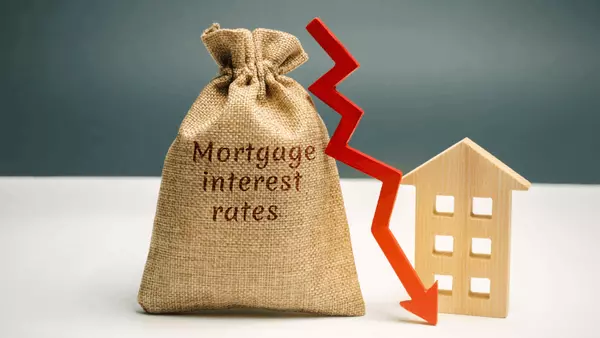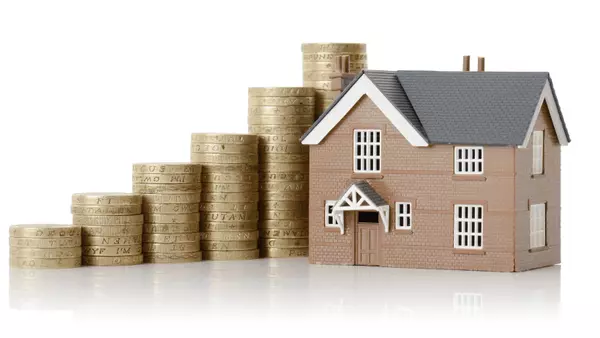Patience Won’t Sell Your House. Pricing Will
You might think, “If I just wait long enough, the perfect buyer will come along.” But here’s the blunt truth: that’s not a strategy—it’s a hope. In today’s real estate market, price is the driving force. Why Waiting Alone Isn’t Enough Buyers today are very price-sensitive. They scroll past homes tha
Why 50% of Homes Are Selling for Under Asking and How To Avoid It
Have you noticed lately how many houses seem to sell below their list price? You’re not imagining things. In fact, recent real estate data shows more than half of homes are closing below asking price. That’s a big turn from a couple of years ago, when sellers often had the upper hand. If you’re gett
3 Reasons Affordability Is Showing Signs of Improvement This Fall
Let’s face it—“affordability” has felt like a distant dream for many over the last few years. But as autumn rolls in, there are glimmers of hope. Below are three reasons why you might start seeing (or feeling) a small shift in your favor—and what to watch out for. 1. Slower Price Growth + Stabilizin
Housing Market Forecasts for the Rest of 2025
As 2025 progresses, the housing market continues to evolve with many factors shaping its direction in the coming months. Buyers, sellers, and investors all wonder what to expect for the rest of the year amid ongoing economic shifts. Sales Activity and Price Trends Experts expect home sales to remain
3 Advantages of Buying a Newly Built Home Today
In today’s evolving housing market, more buyers are discovering the unique benefits of choosing a newly built home. With modern designs, advanced technology, and energy efficiency, new construction offers more than just a fresh coat of paint. If you’re weighing your options, here are three compellin
Why Selling Without an Agent Can Cost You More Than You Think
In the age of online listings and digital marketplaces, selling a home without a real estate agent might seem like an appealing way to save money. After all, skipping the typical 5-6% commission sounds like instant savings. However, selling your home without professional representation can often end
Are These Myths About Buying a Newly Built Home Holding You Back?
Buying a newly built home can be an exciting opportunity, offering modern features, energy efficiency, and customization options. Yet, despite these benefits, many buyers hesitate because of common myths that create unnecessary fear or confusion. Understanding the facts can help you decide if a new
Should You Still Expect a Bidding War?
For years, homebuyers have been accustomed to bidding wars that drive prices up and make the home search a stressful race against time. But in 2025, the landscape is shifting. So, should buyers still expect bidding wars? The answer is: it depends on where you’re looking and what kind of property you
The Truth About Down Payments (It’s Not What You Think)
When it comes to buying a home, the down payment often feels like an intimidating barrier. Many people believe you absolutely need 20% of the purchase price saved upfront to even qualify for a mortgage. The truth? Down payment requirements have evolved significantly over recent years, and what you t
More Contracts Are Falling Through. Here’s How To Get Ahead
In 2025, an unsettling trend is emerging in the housing market: more real estate contracts are falling through before closing. Across the country, the rate of pending home sales canceled has increased significantly. For buyers and sellers alike, this is a shift that demands attention and proactive s
Condos Could Be a Win for Today’s Buyers
In today’s evolving real estate market, many buyers are reconsidering their housing options, and condominiums are increasingly emerging as a strong contender. For buyers who want affordability, convenience, and lifestyle perks without compromising on quality, condos offer an appealing alternative to
Is It Better To Buy Now or Wait for Lower Mortgage Rates? Here’s the Tradeoff
Deciding whether to buy a home now or wait for mortgage rates to drop is one of the biggest questions facing buyers in today’s market. With rates hovering in the mid-6% range and forecasts suggesting they may stick around there for much of 2025 and even into 2026, it’s important to understand the re
From Frenzy to Breathing Room: Buyers Finally Have Time Again
After several intense years marked by rapid sales, fierce bidding wars, and scarce inventory, the housing market is finally showing signs of balance. Buyers today are no longer caught in a nonstop frenzy but instead are beginning to breathe a bit easier. For both buyers and sellers, this shift means
6 Tips in building a summer oasis in your home
Dreaming of summer getaways? Why not bring the vacation vibes to your own backyard? ☀️🌿I’ve put together 6 easy ways to turn your home into a summer oasis—so you can soak up the sun, unwind, and enjoy every moment without ever leaving the house.1️⃣ Create a cozy outdoor lounge with comfy cushions &
What it looks like to work with me!
If you’re new here, hi & welcome! 👋I wanted to share a quick peek at what it’s like to work with me here in Boston — whether you’re buying, selling, or just starting to explore the market!If you ever have questions or need a local resource, don’t hesitate to reach out. Send me a DM anytime, I truly
Neighborhoods You’ll Love
🌆 Hidden Summer Gems Around Boston Thinking of making a move but not sure where to look? Whether you're relocating, upsizing, or just craving a neighborhood that feels more like you, summer is the perfect time to explore Boston’s best-kept secrets. These local gems offer charm, convenience, and tha
Summer Selling Secrets: How to Make Your Home Stand Out in a Hot Market
Thinking about selling but not sure when or how to start? Summer could be your moment — and with the right prep, your home can shine brighter than the competition. Here’s what makes summer a smart time to sell, and exactly how to get your home ready for buyers who are already out there looking. ☀️ W
What You Should Know About Getting a Mortgage Today
In today’s ever-shifting real estate landscape, getting a mortgage isn’t quite what it was a few years ago. Whether you’re a first-time buyer or moving up to your next home, understanding how lending has evolved can help you feel more confident and prepared. Here’s what you should know before applyi
Selling and Buying at the Same Time? Here’s What You Need To Know
For many homeowners, the decision to sell a current home and buy a new one often happens at the same time — and while it can be done smoothly, it’s not without its challenges. Timing, financing, logistics, and emotions all play a role. Whether you're upgrading, downsizing, or relocating, here’s what
Mortgage Rates Are Stabilizing – How That Helps Today’s Buyers
If you’ve been holding off on buying a home because of rising mortgage rates, there’s good news on the horizon: rates are finally showing signs of stability. After a period of sharp fluctuations, we're starting to see a more predictable trend — and that can be a major advantage for buyers. Here’s ho

Melanie Gundersheim
Phone:+1(617) 997-8272
Leave a Message
MORE

Smart Home Upgrades That Actually Add Value in Boston

Spring 2026 in Boston Real Estate: What to Expect Before You List or Buy

Top Home Features Boston Buyers Will Want in 2026

Navigating Mortgage Rates & Affordability in Boston in 2026

Boston Real Estate Market Outlook for 2026: What Buyers & Sellers Should Know

4 Reasons Your House Is High on Every Buyer’s Wish List This Season




















